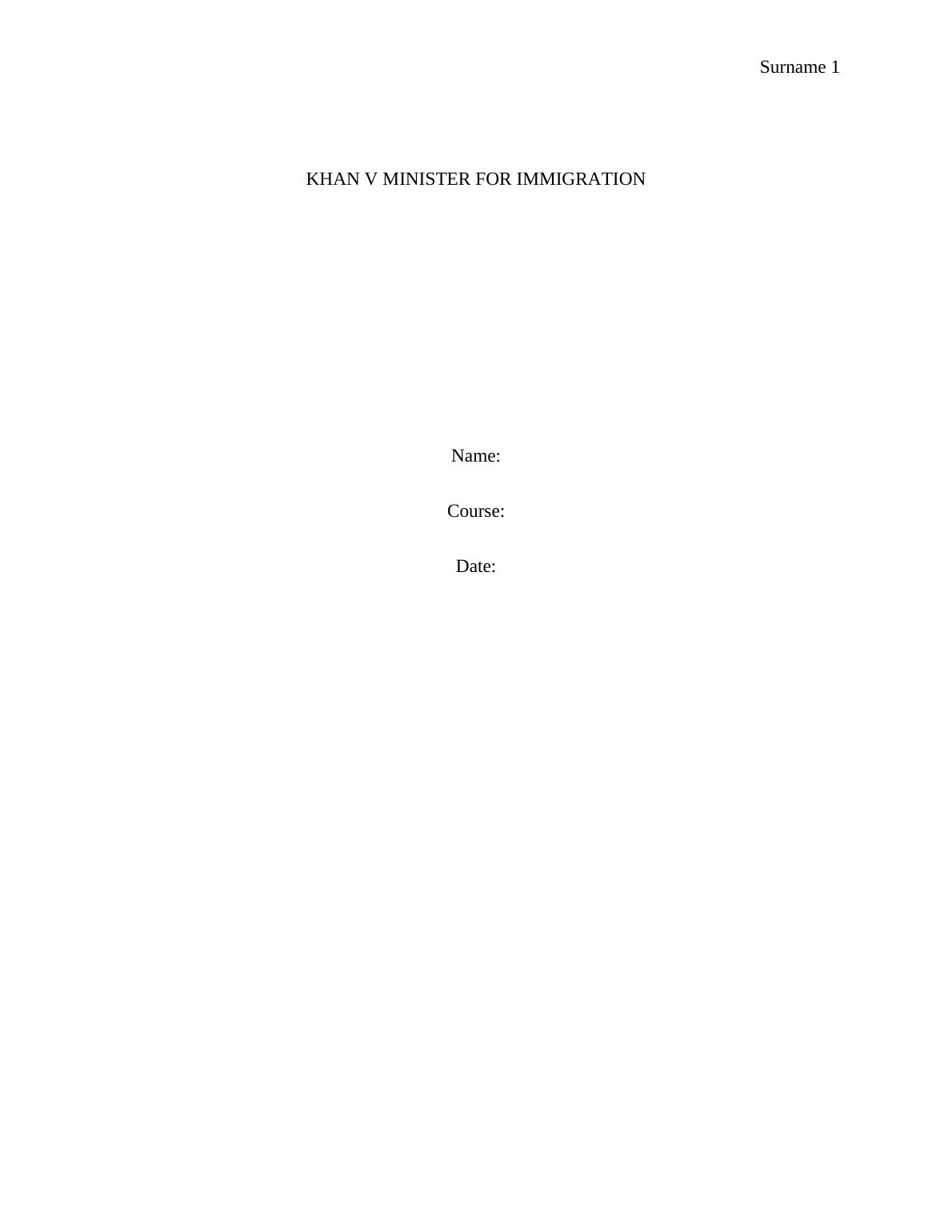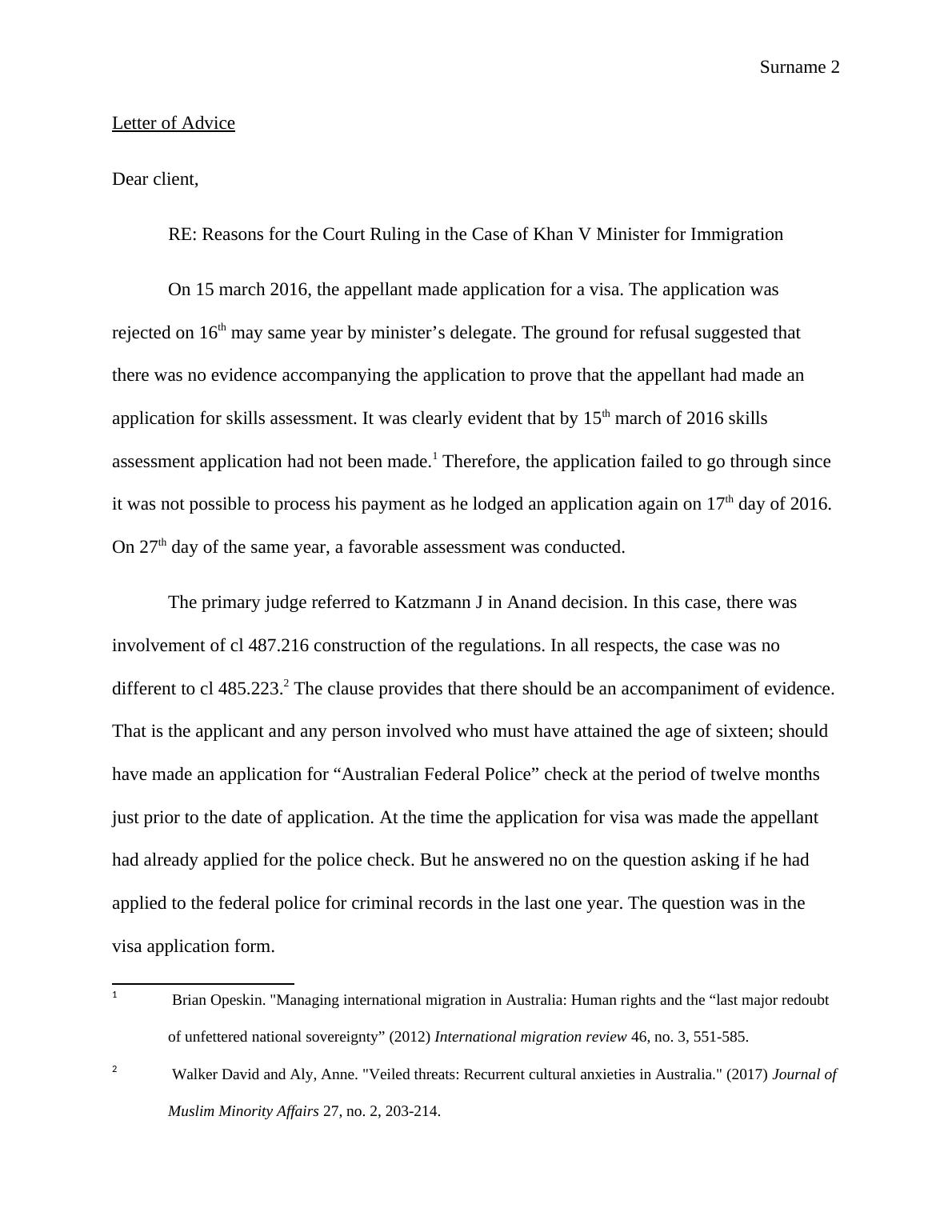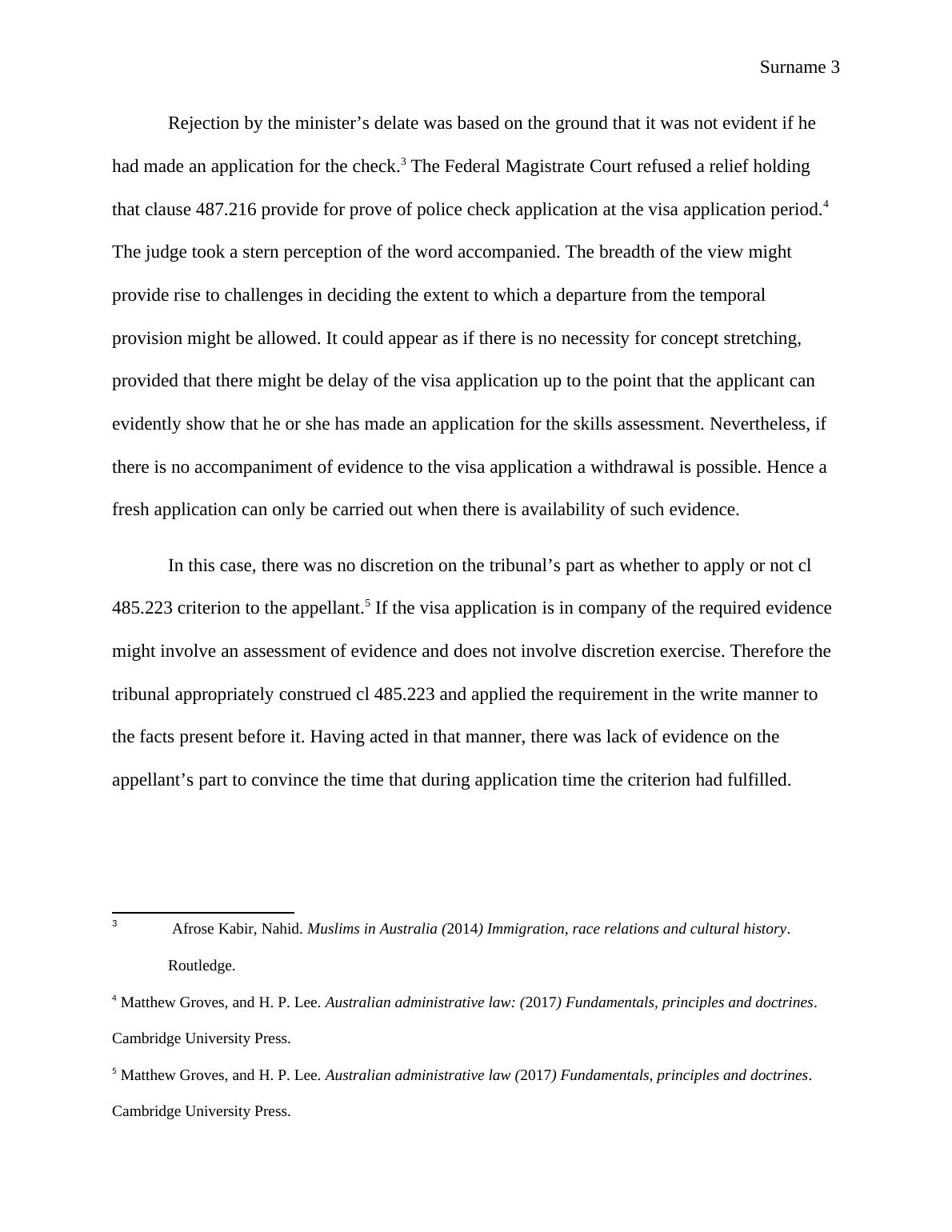Reasons for the Court Ruling in the Case of Khan V Minister for Immigration
Answering questions related to Australia's visa system in the context of migration law.
7 Pages1907 Words185 Views
Added on 2023-06-04
About This Document
This letter of advice explains the reasons for the court ruling in the case of Khan V Minister for Immigration. It also discusses the implications of migration agents who fail to warn applicants of omission. The court's decision was based on the written law, and the appellant's failure to lodge an early application of a skills assessment led to the nullification of the visa application. Migration agents who fail to warn applicants of omission breach the code of conduct and can face penalties.
Reasons for the Court Ruling in the Case of Khan V Minister for Immigration
Answering questions related to Australia's visa system in the context of migration law.
Added on 2023-06-04
ShareRelated Documents
End of preview
Want to access all the pages? Upload your documents or become a member.
Report on Australian Migration Law & Omara
|8
|1462
|58
Karan v Minister for Immigration and Border Protection
|5
|1125
|63
Business Law
|5
|1204
|181
Business Law
|5
|1194
|234
Paper | Migration Law Analysis Assignment
|6
|1091
|462
Court Decision and statutory principles of Judges
|5
|1111
|16



